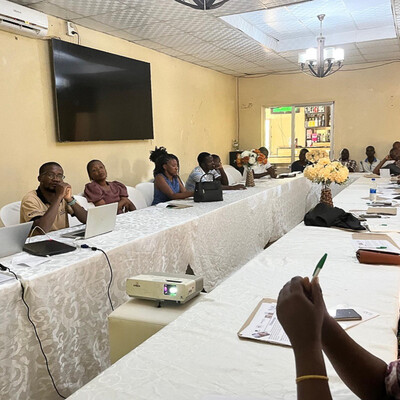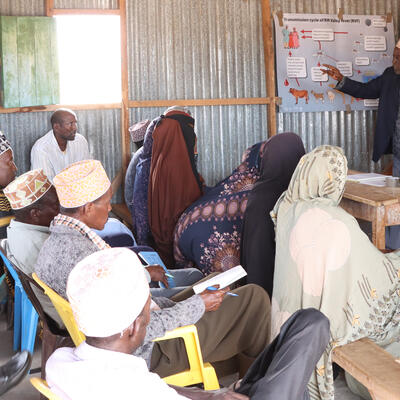

OHRECA fellows secure global One Health prize with innovative proposal on wild meat
Graduate fellow Sherril Phyllis Masudi and Post-doctoral fellow Nicholas Ngwili from the One Health Research, Education and Outreach Centre in Africa (OHRECA) are co-winners of the prestigious Global One Health Prize, alongside Samuel Akpan, a fellow with the Institute of Genomics and Global Health (IGH). The three beat other entries from across the globe at the 2024 World Food Forum’s Transformative Research Challenge (WFF-TRC) held on 15–16 October in Rome with their research proposal titled, ‘Applying community and gender inclusive One Health approaches for safer and more sustainable wild meat use in Lagos, Nigeria’.
This proposal aims to reshape the conversation around wild meat, proposing inclusive, locally driven solutions that prioritize both health and sustainability. It brings a new perspective to food security, conservation and public health.
‘Our approach aims to address the public health, food security and conservation challenges of wild meat consumption in Lagos. It’s a more sustainable alternative to restrictive bans, which often drive illegal trade and threaten community welfare,’ said Masudi, the team lead.
Wild meat, including antelopes, pangolins, porcupines and primates, are a popular delicacy among Lagos’s population of more than 16 million. However, the consumption of these animals poses significant risks, including the decline of vulnerable species and the likelihood of spreading zoonoses. Using a seed grant from the World Food Forum, the team will pilot co-created community interventions to ensure that wild meat remains a safe, accessible resource for communities that rely on it.
'Through this project, we’ll work closely with communities to co-design practical solutions that balance food security with safety and conservation,’ Akpan shared. ‘The aim is to create good, healthy wild meat systems today and for the future.’
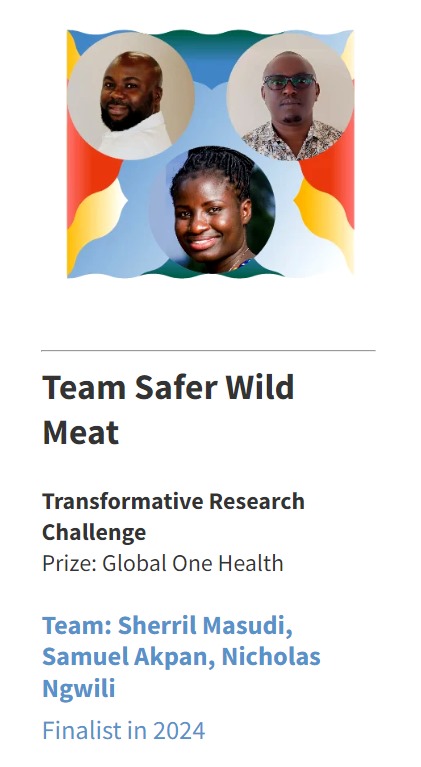
Throughout the challenge, the trio, dubbed ‘Team Safer Wild Meat’, sharpened their proposal-writing skills and benefitted from the mentorship of experts, including Katinka de Balough and Jesse Bonwitt from the World Health Organization and ILRI’s Ekta Patel. They gained invaluable insights into designing One Health initiatives that prioritize community-led solutions, gender inclusivity and local ownership.
‘Working through this proposal has deepened my commitment to studying wild meat as a zoonotic disease vector and food source,’ Ngwili explained. ‘I see this as the first step in a broader effort to win future grants and expand this essential work.’
Team Safer Wild Meat’s winning proposal, underscoring how sustainable wild meat practices can prevent food insecurity, aligns with the World Food Forum’s mission of ‘Good food for all, for today and tomorrow’. Wild meat plays a critical role in the diets of over 400 million people globally, including millions in sub-Saharan Africa. Removing it from food systems could exacerbate malnutrition, especially in protein-deficient regions.
With passion and a strategic vision for resilience, Team Safer Wild Meat is setting a new standard for sustainable food solutions. Their work will not only empower Lagos communities to safely access a vital food resource but also protect and sustain it for generations to come.
The WFF Transformative Research Challenge (TRC) aims to inspire research and innovation in sustainable development to end hunger and transform agrifood systems. Teams of young and young-at-heart researchers are invited to submit a two-page concept note proposing an innovative research idea to help end hunger and transform our agrifood systems. Shortlisted participants receive expert mentorship to help translate their concepts into sound research papers and present them at the WFF global stage each October.
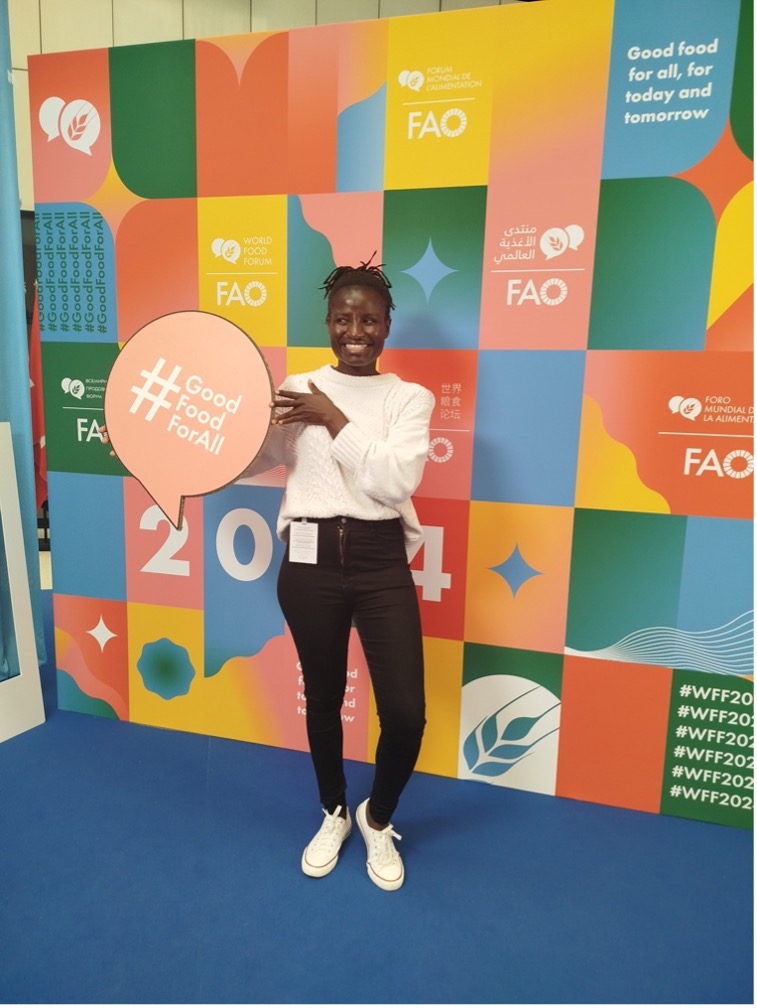
Sherril Phyllis Masudi at the World Food Forum Transformative Research Challenge (photo credit: ILRI).
Read more about wild meat research at ILRI:
You may also like
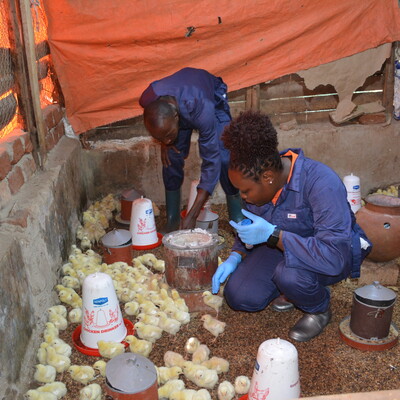
ILRI News
From animals to environment: How livestock antibiotic use drives human health risks beyond the farm
ILRI News
Training local champions to fight zoonotic threats and antibiotic misuse through One Health in Malawi
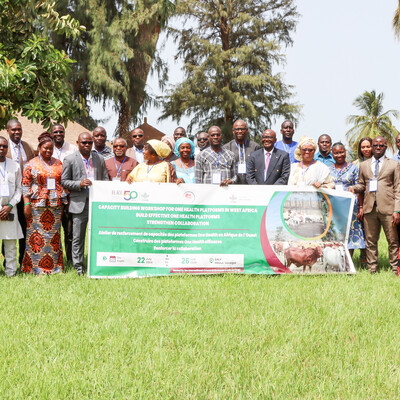
ILRI News
Senegal workshop advances collaboration and sets priorities for strengthening One Health in West Africa
